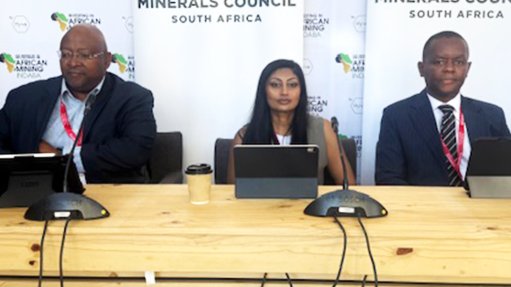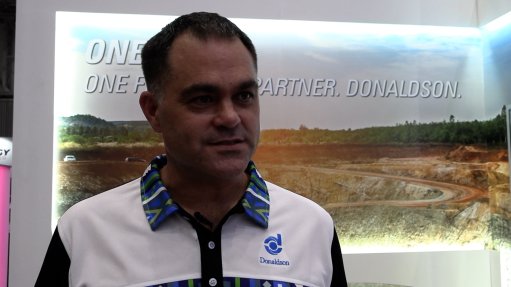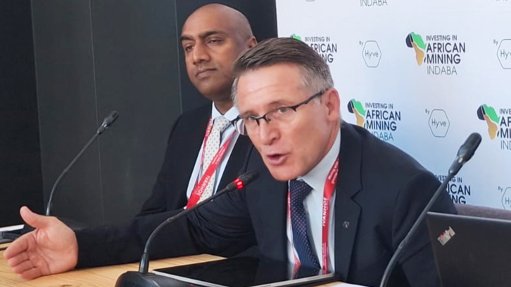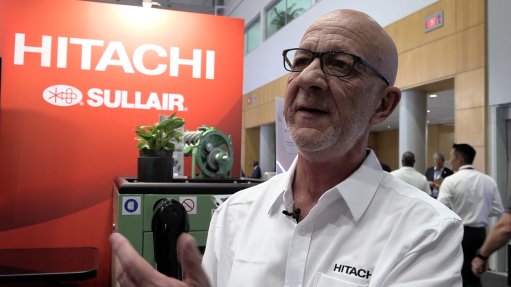Business-friendly policy integral for exploration investment


GRANT MITCHELL The Minerals Council supports a business friendly regulatory environment that specifically takes exploration and the smaller end of the mining market into careful consideration as opposed to relying on a widespread "one-size-fits-all" approach adopted in the Mineral and Petroleum Resources Development Act
The need to develop a business-friendly and stable regulatory environment and policy framework conducive for investment in the mining industry in South Africa is a necessary requirement for catalysing growth in South Africa’s mining industry, says mining industry employers’ organisation Minerals Council South Africa junior and emerging miners desk head Grant Mitchell.
Mitchell adds that this should be coupled with incentivising private-sector investments into exploration projects.
The junior mining sector remains small, owing to limited exploration activity, few exploration projects being initiated and inadequate capital spent on exploration. This results in prospecting efforts not being as comprehensive as they should be to ensure a steady base of junior mining projects and the long-term sustainability of South Africa’s mining industry.
“We really don’t have an environment that supports exploration activity in South Africa and, typically, the exploration work being done is by juniors or larger companies that are already in brownfield-type . . . projects. These companies are working on deposits that are known, with a strategy that focuses on building a mine and using all . . . the mineral deposits that have already been worked on,” adds Mitchell.
The Minerals Council supports a business-friendly regulatory environment that specifically takes exploration and the smaller end of the mining market into careful consideration as opposed to relying on a widespread “one-size-fits-all” approach in the Mineral and Petroleum Resources Development Act (MPRDA), he notes.
South Africa’s mining policies have typically catered for big mining companies, but there is a growing urgency in the local mining landscape to encourage more junior companies to enter the sector.
More exploration and increased mining will unlock South Africa’s unrealised mineral potential to supply global demand for critical minerals that could drive the green economy along with the country’s significant production of platinum-group metals and manganese, among others, needed for a low-carbon future.
With the imminent release of the MPRDA Amendment Bill, Mitchell adds that the Minerals Council surveyed its member companies regarding preferences for an ideal regulatory environment that would encourage growth of the exploration and junior mining sectors.
Feedback from this survey was sent to the Department of Mineral and Petroleum Resources (DMPR). At the time, the Minerals Council was yet to see the Amendment Bill; however, it remains hopeful that there will be fit-for-purpose regulations for exploration and junior mining, as well as the formal development of artisanal and small-scale mining.
“A lot of the requirements in the MPRDA were very difficult for our junior members to comply with; for instance, regarding a social and labour plan [SLP], juniors don’t have the resources and . . . personnel to put together a complex SLP, whereas a big mining company would have the dedicated personnel to do that.”
Mitchell says it is important to acknowledge that the chances of an exploration project succeeding are less than 2%, indicating the high-risk nature of prospecting that makes compliance with the MPRDA, in its current form, difficult.
DMPR Minister Gwede Mantashe has repeatedly stated that exploration companies are exempt from empowerment requirements for mining companies that are obliged to have a 30% shareholding by historically disadvantaged South Africans. The Minerals Council advocates that this be enshrined in the Amendment Bill to remove any confusion in regional offices that still insist on empowerment in prospecting right applications – one of the factors Mithcell says is impeding exploration activities.
Policy certainty and efficient administration are critical for investors backing exploration projects, he says.
Exploration activity in South Africa has dropped considerably in the past two decades. About 20 years ago, Mitchell says South Africa attracted about 5% of global exploration expenditure in US dollars, but adds that levels have subsequently dropped to below 1% for five consecutive years.
Despite this, he says the Minerals Council remains encouraged by the ongoing discourse with the DMPR on implementing strategies that could revitalise exploration activities in the junior mining sector.
Incentivisation Outlined, Comparative Outlook
The Minerals Council advocates the introduction of tax incentives to stimulate exploration activity and Mitchell notes that mining industries in countries, such as Canada and Australia, use tax incentives to increase investments in their respective exploration sectors.
Junior mining companies account for about 7% of total mining production in South Africa, Mitchell says, adding that this sector performs poorly, particularly with respect to exploration, when compared with their global counterparts in Canada and Australia.
Currently, there are six junior mining companies listed on the JSE, whereas there are 883 junior mining companies listed on the Toronto Stock Exchange and 720 listed on the Australian Securities Exchange.
Article Enquiry
Email Article
Save Article
Feedback
To advertise email advertising@creamermedia.co.za or click here
Press Office
Announcements
What's On
Subscribe to improve your user experience...
Option 1 (equivalent of R125 a month):
Receive a weekly copy of Creamer Media's Engineering News & Mining Weekly magazine
(print copy for those in South Africa and e-magazine for those outside of South Africa)
Receive daily email newsletters
Access to full search results
Access archive of magazine back copies
Access to Projects in Progress
Access to ONE Research Report of your choice in PDF format
Option 2 (equivalent of R375 a month):
All benefits from Option 1
PLUS
Access to Creamer Media's Research Channel Africa for ALL Research Reports, in PDF format, on various industrial and mining sectors
including Electricity; Water; Energy Transition; Hydrogen; Roads, Rail and Ports; Coal; Gold; Platinum; Battery Metals; etc.
Already a subscriber?
Forgotten your password?
Receive weekly copy of Creamer Media's Engineering News & Mining Weekly magazine (print copy for those in South Africa and e-magazine for those outside of South Africa)
➕
Recieve daily email newsletters
➕
Access to full search results
➕
Access archive of magazine back copies
➕
Access to Projects in Progress
➕
Access to ONE Research Report of your choice in PDF format
RESEARCH CHANNEL AFRICA
R4500 (equivalent of R375 a month)
SUBSCRIBEAll benefits from Option 1
➕
Access to Creamer Media's Research Channel Africa for ALL Research Reports on various industrial and mining sectors, in PDF format, including on:
Electricity
➕
Water
➕
Energy Transition
➕
Hydrogen
➕
Roads, Rail and Ports
➕
Coal
➕
Gold
➕
Platinum
➕
Battery Metals
➕
etc.
Receive all benefits from Option 1 or Option 2 delivered to numerous people at your company
➕
Multiple User names and Passwords for simultaneous log-ins
➕
Intranet integration access to all in your organisation



















